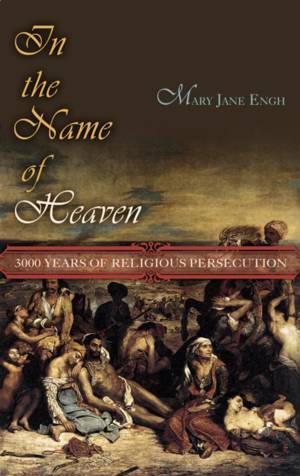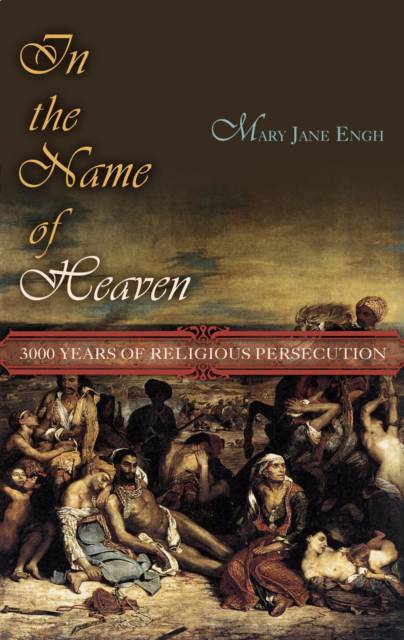
- Afhalen na 1 uur in een winkel met voorraad
- Gratis thuislevering in België vanaf € 30
- Ruim aanbod met 7 miljoen producten
- Afhalen na 1 uur in een winkel met voorraad
- Gratis thuislevering in België vanaf € 30
- Ruim aanbod met 7 miljoen producten
Zoeken
€ 41,45
+ 82 punten
Omschrijving
Religion-the source of inspiration, hope, and basic values for most of humanity throughout history-has also been the motive for atrocious persecutions from antiquity to the present. In the Name of Heaven is a wide-ranging historical survey of religious persecution encompassing three millennia and a great diversity of cultures worldwide. Defining religious persecution as "repressive actions initiated or condoned by authorities against their own people on religious grounds," author Mary Jane Engh begins with ancient Egypt, followed by the biblical history of Israel with its accounts of divinely ordered genocides and capital punishment for worshipers of other deities.Chapters are devoted to ancient Greece (Socrates, Alcibiades, and Aristotle, among others, clashed with the religious establishment); the Roman Empire (persecutions of Jews, Christians, and Manichaeans, and the later persecution of pagans and heretics by a Christianized Rome); the Islamic Empire (persecutions of polytheists and dissident Muslims); and medieval and Reformation Europe (where Protestants and Catholics persecuted each other and both persecuted heretics).The twenty-two chapters also cover Asia, Africa, the Americas, and the Pacific area. In an epilogue Engh reviews the new forms of religious persecution from the 20th century to the present-from major genocides and militant forms of polytheism to persecution of all religion by atheistic governments. Complete with references to further reading, this sobering but factually indisputable survey of religion's dark side enlightens while serving as a warning for the future.
Specificaties
Betrokkenen
- Auteur(s):
- Uitgeverij:
Inhoud
- Aantal bladzijden:
- 272
- Taal:
- Engels
Eigenschappen
- Productcode (EAN):
- 9781591024545
- Verschijningsdatum:
- 1/11/2006
- Uitvoering:
- Hardcover
- Formaat:
- Ongenaaid / garenloos gebonden
- Afmetingen:
- 161 mm x 236 mm
- Gewicht:
- 498 g

Alleen bij Standaard Boekhandel
+ 82 punten op je klantenkaart van Standaard Boekhandel
Beoordelingen
We publiceren alleen reviews die voldoen aan de voorwaarden voor reviews. Bekijk onze voorwaarden voor reviews.







